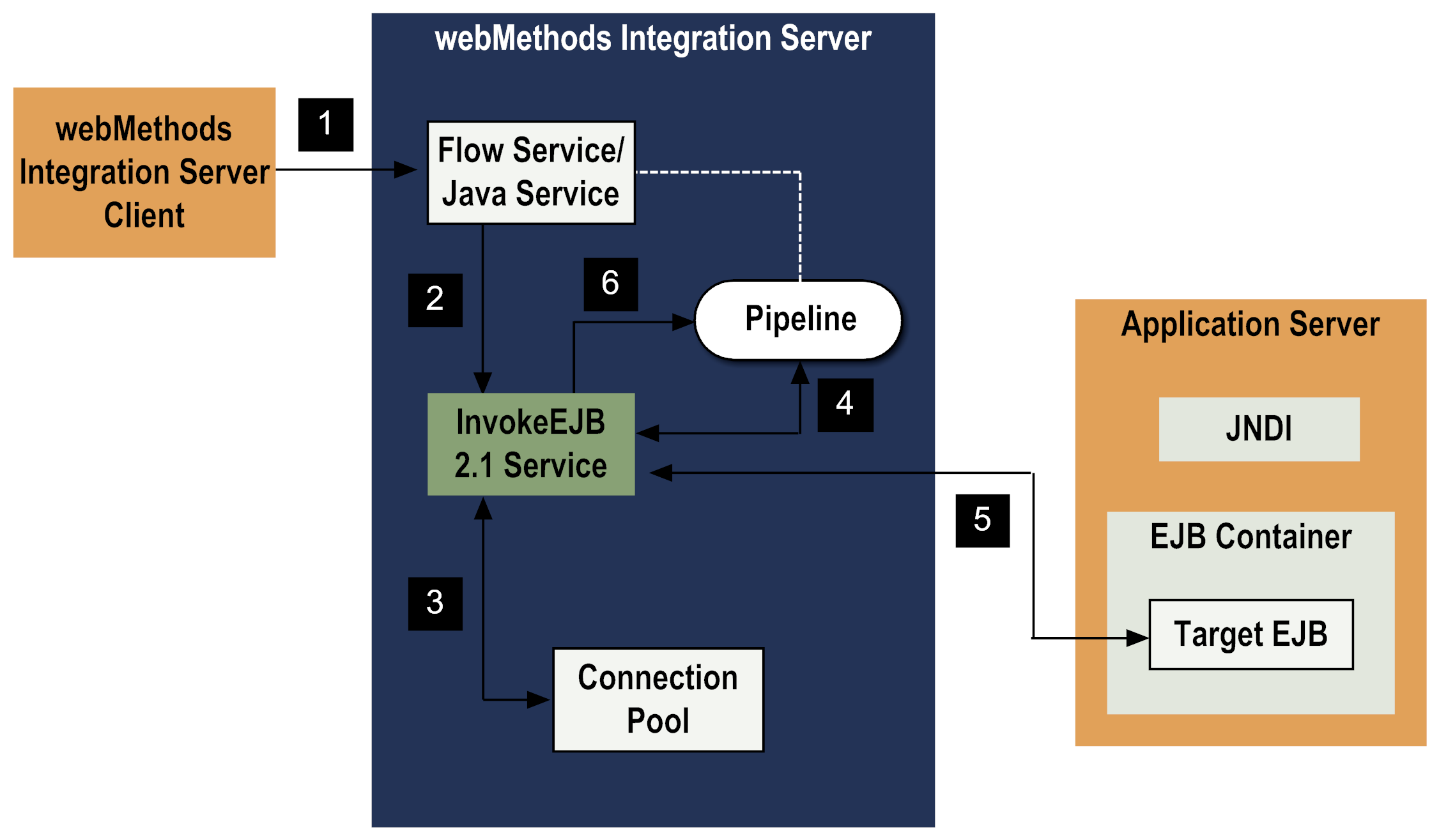

Step | Description |
1 | An Integration Server client runs a flow service or Java service on Integration Server. |
2 | The flow or Java service invokes an InvokeEJB 2.1 adapter service on Integration Server. You configured the adapter service earlier using Designer. |
3 | The InvokeEJB 2.1 adapter service gets a connection from the service's connection pool. You created and enabled the adapter connection earlier using Integration Server Administrator. |
4 | The InvokeEJB 2.1 adapter service gets the EJB object handle from the pipeline. |
5 | Through its connection, the InvokeEJB 2.1 adapter service invokes the configured EJBObject method on the application server. If the method takes any parameters, the values are extracted from the pipeline and passed to the remote method. If the operation is successful, the adapter service returns the method's output, if any. If the operation is unsuccessful, the adapter service throws an AdapterException or AdapterConnectionException. For more information about how the adapter handles exceptions, see Adapter Logging and Exception Handling. |
6 | The InvokeEJB 2.1 adapter service saves the output of the method and status on pipeline. |